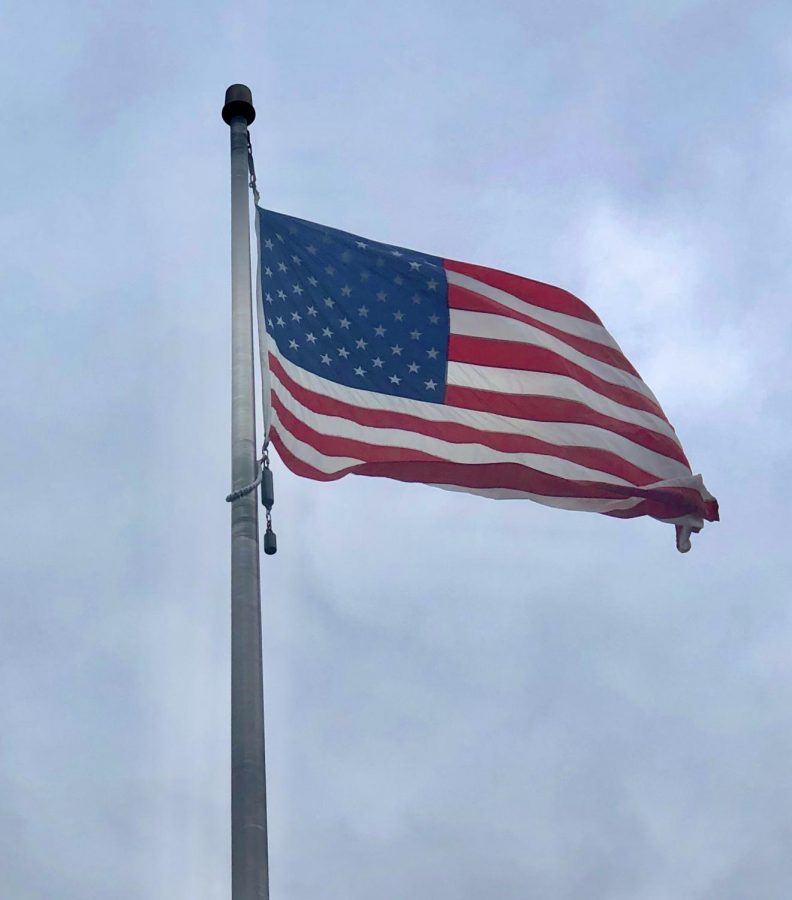UWL ROTC talks leadership and mental health
October 21, 2019
Throughout the United States, there are over 20,000 college students in over 1,700 universities engaged in the Reserve Officers’ Training Corps, preparing to become future officers in the U.S Military. While members of the military protect and defend the country, combat can be draining and have a large impact on the mental health of our soldiers. A recent study found mental health amongst military personnel has been greatly impacted over the past ten years, causing increased levels of Post-Traumatic Stress Disorder, or PTSD.
The Reserve Officers’ Training Corps, or ROTC, is a college program that prepares students to become officers in the U.S Military while they earn a degree. “I chose to join because my dad was in the army, so it was something I had always thought about,” said Senior Stephan Richards who has been in the ROTC for four years. “But I also knew I wanted to go to college and ROTC is kind of the best of both worlds.”
After committing to serve in the military post-graduation, the students’ college tuition is fully funded and paid for. “Part of it was financial, I knew they paid for my tuition in full,” said four-year ROTC member, Senior Joseph Messer. “But also, I joined the ROTC because I wanted an extra challenge to go along with school, like the physical and mental challenges, you have to face throughout the program.”
Students in the ROTC have schedules comparable to those of student-athletes. “They (ROTC members) have their normal course load, but they also have all their obligations to the program,” said Chair of the Military Science Department at the University of Wisconsin- La Crosse, Erik Archer. “There are labs on Thursday afternoons, PT (Physical Training) in the mornings on Mondays, Wednesdays, and Fridays, and as they become more involved as a junior or senior, they have more obligations to help prepare them for an army career. But it is equivalent to playing volleyball, or any other athletic sport, here on campus.”
“We work out in the morning from 6 a.m. to 7 a.m., usually three times a week,” said Richards. “We also have a two-hour lab on Thursday afternoons when we go out to places around the community and just do hands-on training.”
While training students to become future members of the military, the ROTC also teaches them the importance of leadership. “It challenges you in a lot of ways and works to develop you as a leader since that is what the Army is intending to get out of you,” said Messer.
The values of the ROTC stem from the Army’s set of core values. “The Army has an acronym called LDRSHIP (Leadership) or, Loyalty, Duty, Respect, Selfless Service, Honor, Integrity, and Personal Courage,” said Archer. “So those drive pretty much everything we do in the Army as well as the ROTC.”
“The ROTC has definitely helped me build confidence,” said Richards. “We do a lot of presentations, speaking and briefing that has helped build confidence for speaking in front of others and interacting with people.”
With so many recruits becoming future members of the U.S Military, discussing the importance of mental health is necessary.
The American Psychiatric Association, defined Post–Traumatic Stress Disorder (PTSD), as a psychiatric disorder that can occur in people who have experienced or witnessed a traumatic event. The traumatic events that can cause PTSD could be natural disasters, accidents, personal assault, or war/combat.
PTSD causes intense flashbacks and nightmares, recollections of experienced traumas, numbness, irritability, depression, and anxiety. PTSD can lead to a heightened startle-response, causing an increased risk for panic attacks, difficulty sleeping, angry outburst or extreme irritability.
When the human body experiences a stressful situation, the “flight or fight” response is stimulated. According to Harvard Health Publishing, when the stress response is stimulated the body makes a “cascade of stress hormones that produce well-orchestrated physiological changes.”
The experience of a stressful situation stimulates the sympathetic nervous system, releasing different hormones including adrenaline and noradrenaline. Physical changes the body experiences during this response include increased heart, blood pressure and breathing rates, muscle tension, dilated pupils, and profuse sweating.
“When we are done with college, we come out of the ROTC as officers,” said Richards. “So right off the bat we are leaders of 20-40 people, so that’s one thing that they have advised us to look out for, making sure your people are okay mentally.”
“A big issue with the Army is suicides after coming home from deployment, so we’ve done training with MRT (Mental Readiness Training), and that is just one way that the army is working to avoid those issues a little bit,” said Messer.
According to U.S News and World Report, the number of veterans who suffer from PTSD varies depending on the war they served in; 11-20 percent of veterans who served in Iraqi Freedom, 12 percent of veterans who served in the Gulf War, and 30 percent of Vietnam veterans develop PTSD throughout a given year. Suicide due to PTSD has been rising, stating in 2016 veteran suicide rates were 1.5 percent higher than non-veterans.
Knowing how combat affects members of the military, the ROTC provides classes based on resiliency and mental health. “The Army itself deals with mental health on levels that, I think, are comparable to any other organization because across the Army mental health is an important concern,” said Archer. “So, what we do in the program is we teach that same type of thing because, of course, ROTC is very different than the army, but we teach resiliency even now because it is important to have that foundation.”
“Resiliency as a topic that applies to everybody, and we begin teaching it freshman year,” said Archer. “Students deal with academics, life, parents and relationships. There’s a lot of stuff going on and we find resiliency helps folks deal with it a lot better.”
“A lot of people in the Army are certified and trained on how to keep a resilient focus that helps you deal with these types of things.” said Archer. “Our job here is to teach leadership, create citizens of character and presence, and ultimately commission into the army talented young men and women who can ably lead our nations sons and daughters.”
An anonymous student and ROTC member reached out to The Racquet Press wishing to add a comment, “I think it (ROTC) could do a little bit better. I think it would be best spent spending time working on how to help others address mental health since that is what our jobs in the army will be, learning how to recognize issues before they become a problem, so knowing who to talk to and direct them to since we are not trained to be the ones to deal with it. We should be taught to recognize it and defer them to the right people.”
For more information on the ROTC visit, https://www.uwlax.edu/rotc/, or visit 212 Cartwright Center.






